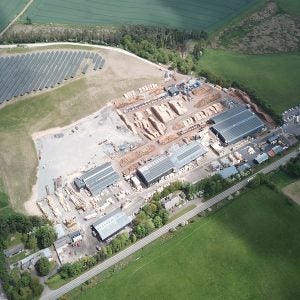The November 20-21 event saw global hardwood market assessments shared, with the prevailing opinion that the European hardwood markets this year have felt the pinch of the global trade tensions and general slowdown of the economy, following a relatively positive period in 2018.
Chinese demand for European hardwood has slowed down a little, while production in European Organisation of the Sawmill Industry (EOS) countries is expected to have slowed down by 0.7% in 2019.
The biennial conference is co-organised by the EOS and the European Timber Trade Federation (ETTF) and this year was also co-ordinated by the German Sawmill and Timber Industry Association (DeSH). The symposium attracted 125 participants from 20 nations, continuing the successes of recent years.
“The large number of participants has made it clear that Berlin provided an outstanding stage for the IHC 2019,” said EOS Vice President Maria Kiefer-Polz.
“We were able to demonstrate how wood as a building material opens up new markets in growing cities and discussed further opportunities and potentials of hardwoods with proven experts”, he said.
A key topic discussed was climate change and its consequences for the forestry and timber industries. In the context of this discussion, future tree species availability with regards to forest adaptation to climate change was examined.
Dr Josef Braml from the German Council on Foreign Relations analysed the impact of the current trade conflict between the US and China. Moreover, this year’s programme specifically addressed the opportunities of environmental product declarations and life-cycle considerations.
“The topics were again as diverse this year as the participants from all over the world,” said Andreas von Möller, former ETTF President and moderator of the conference.
“We can look back on a successful event content-wise, in addition to the exchange of expertise and networking opportunities.”
All presentations of the event will shortly be available at the following website: https://ihc2019.berlin/






